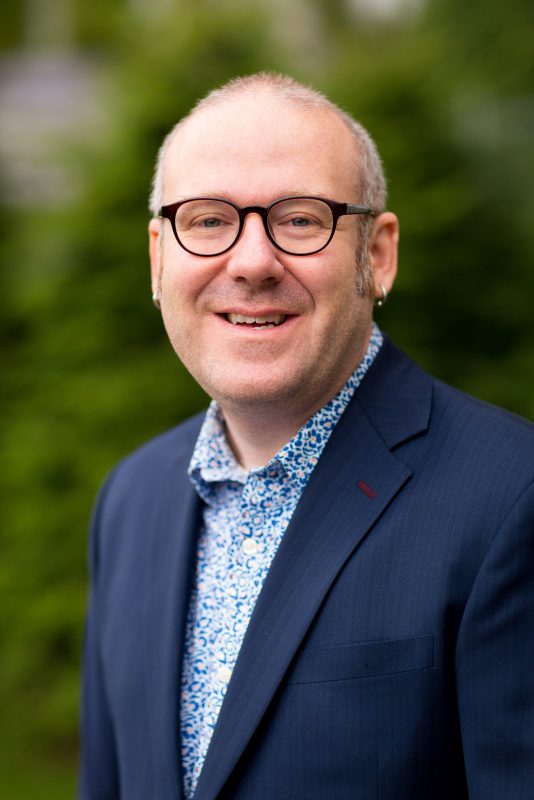But it certainly happens more quickly if you surround yourself with revolutionary thinkers.
 That’s one of the reasons Michael Gill, associate professor of disability studies, decided to take his teaching career to Syracuse University. Gill started as an assistant professor in disability studies in fall 2015; he held prior faculty roles at Grinnell (Iowa) and University of Connecticut.
That’s one of the reasons Michael Gill, associate professor of disability studies, decided to take his teaching career to Syracuse University. Gill started as an assistant professor in disability studies in fall 2015; he held prior faculty roles at Grinnell (Iowa) and University of Connecticut.
“Syracuse has a long history of doing exciting and really groundbreaking work with people with labels of intellectual and developmental disabilities. It’s the place where the leaders of the field have been and currently are, and it’s the place I wanted to join up with.”
Gill coordinates and advises for the disability studies minor, where undergraduates take classes are often students who identify as disabled, have a family member with a disability, or they want to work as an occupational or physical therapist, teacher, or in another disability-connected field. Some students go on to study law and social policy. Associate Professor Alan Foley, director of the Center on Human Policy, oversees the C.A.S. for the department and teaches classes such as Disability in the Global South and Assistive Technology. Other graduate classes include topics on Intellectual and Developmental Disability (IDD) and Human Rights, and Sexuality and Human Rights.
Gill points to some of the big names in the disability advocacy field who came through the School of Education as proof that this is where innovation happens. “Burton Blatt, Doug Biklen, Steve Taylor, Wolf Wolfensberger, you can see the evolution of their thinking.” He gives Christmas in Purgatory as an example of how, with time, perspectives change. “On some level, it was a revolutionary text in the sense that Blatt sneaks into these institutions with photographer Fred Kaplan and they expose the violence that people with IDD were facing. At the end of the text he doesn’t call for the closing of institutions, he talks about a better institution at the time. It’s not until later that there’s an evolution where he gets to the point of saying ‘let’s close them.’”
Gill began his work in disability in graduate school, where he wondered how feminist theory could be applied in particular to people with IDD. “I worked in a sheltered workshop as a support staff person, so part of my motivation to go to graduate school was thinking about how could I reform an employment system, and the larger power issues at play—how often times those considered non-disabled professionals are often given too much power.”
His first book was on aspects of sexuality and reproduction for people with labels of IDD, thinking about how the work of disability studies and feminist studies intersect to engage the issues of power, privilege and consent. “I thought about questions of eugenics, consent, people with IDD not being allowed to get married, put on birth control, given sub-minimum wage…These assumptions about capability are at the root of the work,” says Gill. “People with IDD are able to communicate and make choices around sexuality. Assumptions of intelligence are faulty,” says Gill. “They should be agents of their own sex lives and parenting.”
Gill also teaches a semester-long seminar on sexual education for students with IDD enrolled in InclusiveU. “We are facilitating and enabling people to make decisions about their lives. There’s a hunger for accessible sex education.”
He thinks the next big “aha” moment in the disability rights movement might be around guardianship and supported decision making. He says that there needs to be modes of supported decision making and guardianship that recognize that all individuals are capable of making decisions, that people need to question the assumption that you need a parent or family member involved.
The connection between Gill and InclusiveU has deepened with an increasing number of students in InclusiveU taking his disability studies classes. “They’re all repeat students, they’re becoming experts in disability studies. What’s exciting for me is they’re in the class doing the work, really engaging and completing exciting work. The students can hold their own with their peers.”
“Taking research into practice, I’m able to be with the students— we’re doing the work together,” says Gill.
This article originally appeared in the 2019 issue of Education Exchange Magazine
